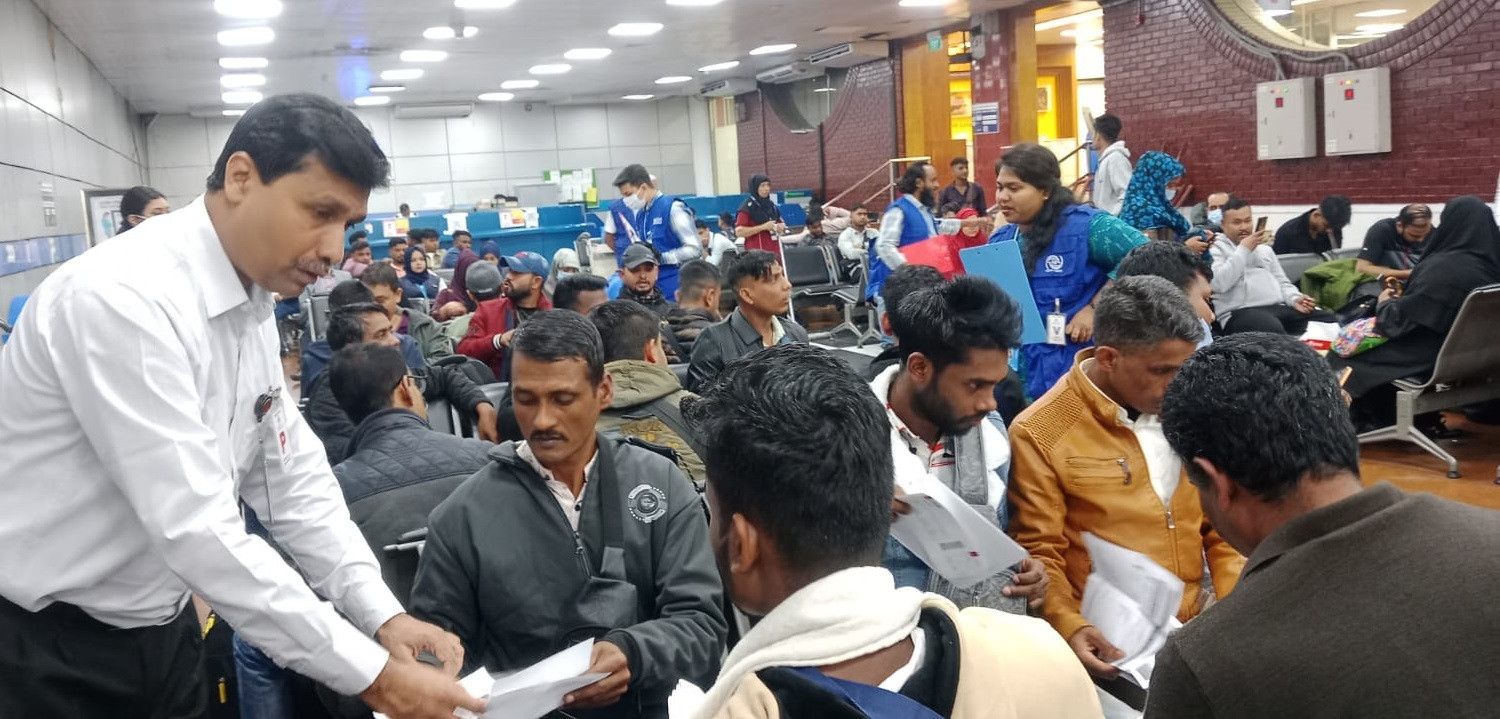All major steps taken by government agencies to check illegal employment of and tax evasion by foreign nationals and to prepare a database of such nationals have remained mostly on paper even after more than half a decade.
The government agencies have failed to ensure the payment of salaries and remunerations to foreign workers through the banking channel, leaving the scope wide open for tax evasion even by legal foreign workers.
Though there are no formal or institutional figures of foreigners working in the country but various estimates say that the number is between 5 lakh and 10 lakh.
The NBR said that 10,000 foreign workers submitted their tax returns in the immediate past fiscal year but home minister Asaduzzaman Khan told parliament the previous year that 85,486 foreigners from 44 countries were legally working in different sectors of Bangladesh.
Transparency International Bangladesh in a study in February 2020 said that at least 2.5 lakh foreigners from 44 countries were working in Bangladesh legally and illegally and were draining out at least $3.15 billion or Tk 26,400 crore each year.
The National Board of Revenue took various measures, including the steps to form two task forces and develop a database of foreign workers, without any progress in the situation, according to officials.
The activities of the task forces and the other moves have almost fallen flat despite making efforts and due to lack of live data, NBR member (legal and enforcement) Nahar Ferdousi Begum told New Age on Thursday.
‘We have sent a proposal to the Special Branch of the police to share live data with us but the agency is yet to agree,’ she said.
The other initiatives included conducting drives at factories and firms to detect illegal foreigners by the NBR and upgrading the minimum salary structure for foreigners by the Bangladesh Investment Development Authority.
An intelligence agency on August 2 in a letter to the home ministry and the NBR also expressed concern over tax evasions and money laundering by foreign workers taking the advantage of cash payment system and the very low minimum salary structure.
The NBR in early 2016 formed two regional task forces, one in Dhaka and the other in Chattogram, to develop a database and conduct drives at firms for detecting illegal foreign workers.
The revenue authority also set up income tax booths at major immigration check posts, including at Hazrat Shahjalal International Airport and the Benapole land port, to verify the tax payment status of the foreign workers during their departure from Bangladesh.
None of the three initiatives has materialised.
The move to review the minimum salary structure, first taken in 2013 by the formerly Board of Investment, now BIDA, is yet to see any success.
The NBR taskforces have not been conducting any drives for the last two years after it found few illegal foreign workers, due to various practical reasons, during earlier drives at a number of business firms, officials said.
No tax officials were deployed either at the income tax booths at the immigration check posts during the period, they said.
The task force concerned and Income Tax Zone Dhaka-11, the dedicated tax office for foreigners, also sought the list of foreign workers for several times from local employers but met with little response.
The database development has been facing impediment as the SB has been declining to provide real-time data about registered foreigners.
The NBR prepared customised software in 2018 to develop the database but it remains useless due to lack of real-time intelligence data as the SB provides three-month old dataset declining to provide real-time data on information security ground.
Bangladesh Police’s special branch deputy inspector general Md Mazharul Islam could not be reached for comments despite several attempts.
NBR member Ferdousi said that it was not possible to detect illegal foreign workers until or unless local employers cooperated, she said, adding that employers kept the illegal workers undocumented and made their payment in kind, instead of by bank transfer.
She said that chasing foreigners to detect illegal workers was not the right way and this measure was practically almost impossible to put to practice.
‘How can the NBR detect illegal foreign workers if the employers claim, when queried by NBR officials, that they are their guests or visitors and if they make payment to them outside of the banking channel?’ she questioned.
The NBR, however, is continuing its efforts to get success, though it will take time, she added.
The government through the Finance Act-2015 introduced a strict penal provision against the unauthorised recruitment of foreign nationals — without the prior approval of the BIDA and other relevant agencies.
An employer will face imprisonment for up to three years alo












